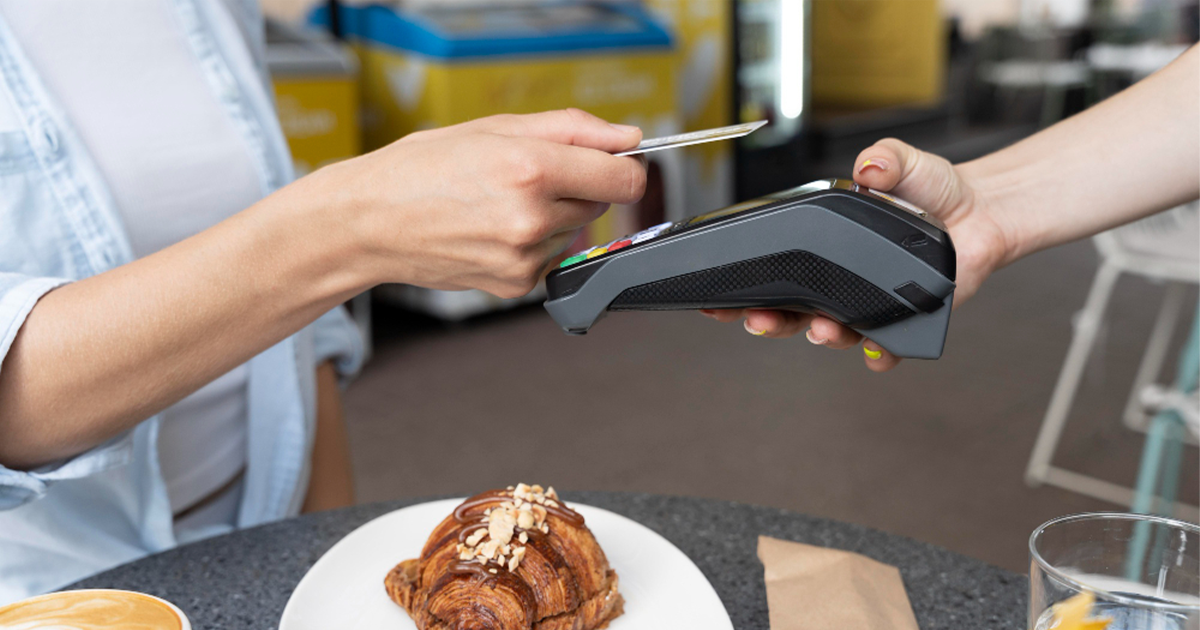
| December 4th, 2023 |
Serving Success — Mastering Credit Card Processing for Seamless Food Delivery Services!
In a world where convenience reigns supreme, food delivery services have become an integral part of our daily lives. Whether it’s a busy weeknight, a lazy Sunday, or a special celebration, the ease of having delicious meals delivered to our doorstep is unmatched. Behind this seamless experience lies a crucial element – credit card processing. In this blog post, we’ll delve into the intricacies of credit card processing for food delivery services, exploring how it works, why it matters, and how businesses can ensure a smooth and secure transaction process.
The Basics of Credit Card Processing:
To kick things off, let’s demystify the credit card processing system. When a customer places an order through a food delivery app or website, the payment process involves several steps. First, the customer enters their credit card information, which is then encrypted and securely transmitted to the payment gateway. The payment gateway serves as the bridge between the customer, the food delivery platform, and the acquiring bank.
Once the payment gateway verifies the transaction details, it sends the information to the acquiring bank for approval. The acquiring bank checks the customer’s account balance and, if sufficient funds are available, approves the transaction. The approved transaction is then relayed back through the payment gateway to the food delivery platform, completing the process. This seamless journey takes only a matter of seconds but involves a sophisticated network of technologies working in harmony.
The Importance of Seamless Credit Card Processing:
In the fast-paced world of food delivery, where customers expect quick and reliable service, seamless credit card processing is non-negotiable. A glitch in the payment process can lead to frustrated customers, abandoned orders, and a tarnished reputation for the food delivery service. Therefore, businesses must invest in robust and reliable credit card processing systems.
1. Customer Trust and Loyalty:
Trust is the currency of online transactions. When customers trust that their payment information is handled securely and transactions are processed smoothly, they are more likely to become repeat customers. Establishing trust is not only about securing sensitive data but also about providing a hassle-free payment experience. Seamless credit card processing contributes significantly to building and maintaining customer loyalty.
2. Reduced Abandoned Carts:
Imagine this scenario: a customer has selected their favorite dishes, added them to the cart, and proceeds to checkout. However, a cumbersome or slow payment process prompts them to abandon their order. This scenario is a nightmare for food delivery businesses. Implementing efficient credit card processing reduces the likelihood of abandoned carts, ensuring that customers complete their transactions without frustration.
3. Quick and Efficient Operations:
In the competitive food delivery landscape, time is of the essence. Efficient credit card processing enables swift transactions, allowing businesses to process a high volume of orders seamlessly. This efficiency not only benefits customers who receive their orders promptly but also enhances the overall operational effectiveness of the food delivery service.
Ensuring Security in Credit Card Processing:
While seamless transactions are paramount, the importance of security cannot be overstated. The online realm is rife with cyber threats, and the food delivery industry is a lucrative target for hackers seeking to exploit vulnerabilities in payment systems. To safeguard both customer data and business integrity, food delivery services must prioritize the following security measures:
1. Encryption Protocols:
Implementing advanced encryption protocols is the first line of defense against data breaches. Encryption ensures that sensitive information, such as credit card details, is transformed into unreadable code during transmission, making it nearly impossible for unauthorized parties to decipher.
2. PCI DSS Compliance:
The Payment Card Industry Data Security Standard (PCI DSS) is a set of security standards designed to ensure that all companies that accept, process, store, or transmit credit card information maintain a secure environment. Compliance with PCI DSS is not only a best practice but, in many cases, a legal requirement.
3. Tokenization:
Tokenization involves replacing sensitive information, like credit card numbers, with a unique identifier or “token.” Even if a hacker gains access to the token, it holds no value without the corresponding decryption key. Tokenization adds an extra layer of security to credit card processing systems.
Choosing the Right Payment Gateway:
Selecting the right payment gateway is a critical decision for food delivery services. The payment gateway serves as the linchpin of the entire credit card processing system. Consider the following factors when choosing a payment gateway:
1. Reliability and Uptime:
A reliable payment gateway ensures that transactions occur without interruptions. Downtime can result in lost revenue and damage to the brand’s reputation. Prioritize gateways with a proven track record of uptime and reliability.
2. User-Friendly Interface:
The user interface of the payment gateway should be intuitive for both customers and businesses. A complicated or confusing interface can lead to errors and hinder the overall user experience.
3. Compatibility with Multiple Payment Methods:
Customers have diverse preferences when it comes to payment methods. A flexible payment gateway that accommodates various credit cards, digital wallets, and other payment methods enhances convenience for customers.
Conclusion:
In the realm of food delivery services, mastering credit card processing is a recipe for success. From the initial entry of payment information to the secure transmission of data and the final approval from the acquiring bank, each step plays a crucial role in ensuring a seamless and secure transaction process. By prioritizing efficiency, security, and customer experience, food delivery services can not only meet but exceed the expectations of their hungry clientele. As the digital dining experience continues to evolve, a well-executed credit card processing strategy will remain at the heart of delivering satisfaction, one order at a time.